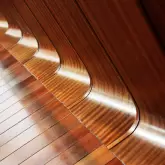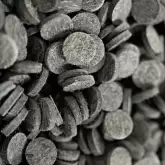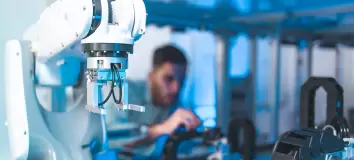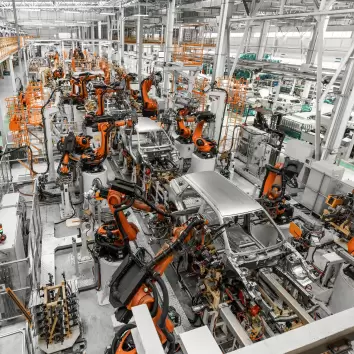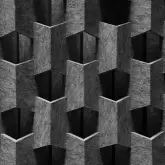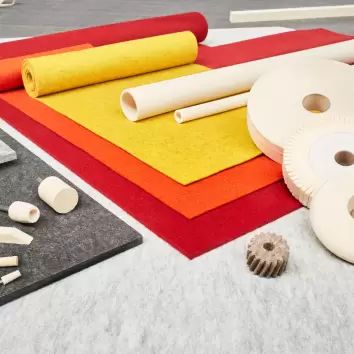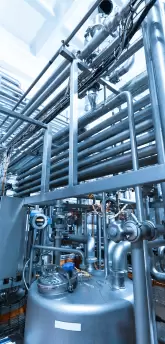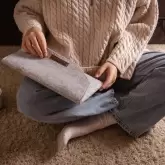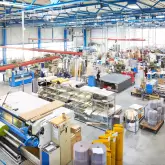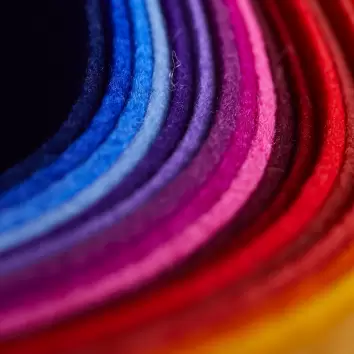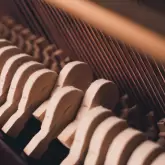Felt in interior design: functional, ecological & stylish
Felt in interior design is a versatile, ecological and aesthetic material. Originally valued as a heat-insulating and hard-wearing item of clothing, felt is now also widely used in interior design. Its unique textile properties make it possible to absorb sound and thus improve room acoustics, which is particularly important in large or open rooms.
The natural nature of felt is in line with the trend towards sustainability. It is mainly made from wool, a renewable raw material that is biodegradable. This makes it an environmentally friendly choice for eco-conscious consumers and designers. In interior design, felt is used for a variety of applications: from wall panelling, room dividers and curtains to furniture covers, cushions and carpets. Its versatility makes it possible to design both modern and traditional spaces. Felt offers a rich colour palette and can be easily dyed, allowing designers to create bespoke solutions for any room concept.
Another advantage of felt in interior design is its ease of care. Felt is naturally dirt-repellent and hard-wearing, making it a practical choice for high-traffic areas. The combination of functionality, aesthetics and sustainability makes felt a popular material in modern interior design.
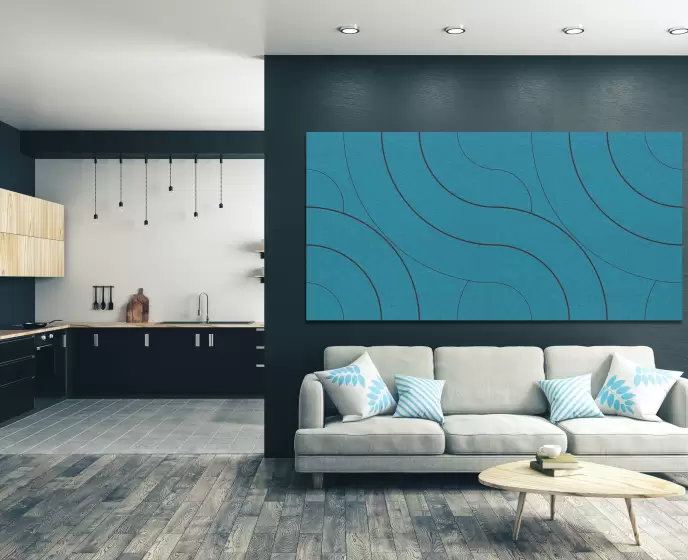
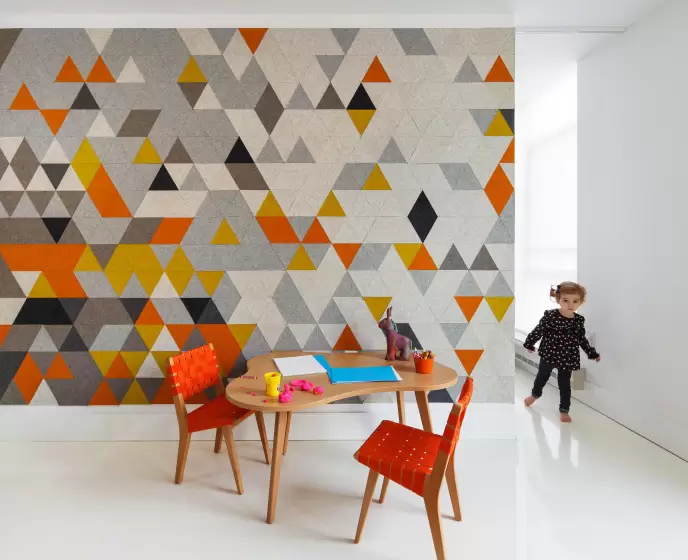
Felt in the automotive industry: a key material for insulation & soundproofing
Felt plays an important role in the automotive industry, primarily due to its diverse properties and possible applications. The material, which is usually made of wool or synthetic fibres, is characterised by its flexibility, durability and sound insulation. In vehicles, felt is often used for noise insulation to ensure a quieter driving experience. It can be found in door panels, headliners, boot linings and even in floor coverings, where it not only dampens sound but also reduces vibrations.
Another advantage of felt is its thermal insulation. In the automotive sector, it helps to regulate the interior temperature by minimising the transfer of heat and cold. This contributes to a more comfortable interior climate and can even improve the efficiency of the air conditioning system. The environmental sustainability of felt is also an important factor. Many manufacturers use recycled materials or natural fibres to reduce the ecological footprint of their vehicles. In addition, felt is lightweight and therefore helps to reduce the overall weight of the vehicle, which in turn reduces fuel consumption and CO2 emissions.
Felt is versatile in production and can be easily processed into different shapes and densities. This makes it ideal for customisation to different vehicle models. The ease of processing and customisability of felt enables cost-effective production, which is an economic advantage for car manufacturers.
Innovations in felt technology have led to the development of special variants, such as heat-resistant or water-repellent felts, which fulfil the specific requirements in various vehicle areas. This adaptable material therefore plays a decisive role in the development of modern, environmentally friendly and high-performance vehicles.
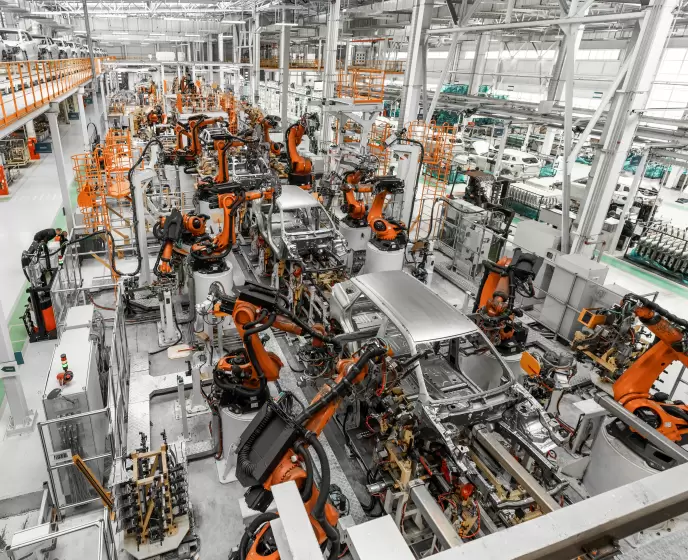
Felt in industrial production
Felt has established itself in industry as an indispensable material that is characterised by its versatility and adaptability. The development of felt products demonstrates an impressive range of technical applications, from filtration to sound insulation. As a filter material, felt is used in air and liquid filters due to its porous structure and ability to effectively retain particles. These properties make it ideal for use in sensitive areas such as the food, beverage and pharmaceutical industries, where purity and precision are of vital importance.
Felt products are also used in the automotive industry due to their sealing and cushioning properties. They not only provide protection and cushioning for sensitive components, but also contribute to noise insulation and thus to increased driving comfort. In the construction industry, felt is valued for its excellent insulating properties and its resistance to moisture and heat. These properties make it a favoured material for insulating buildings and improving energy efficiency.
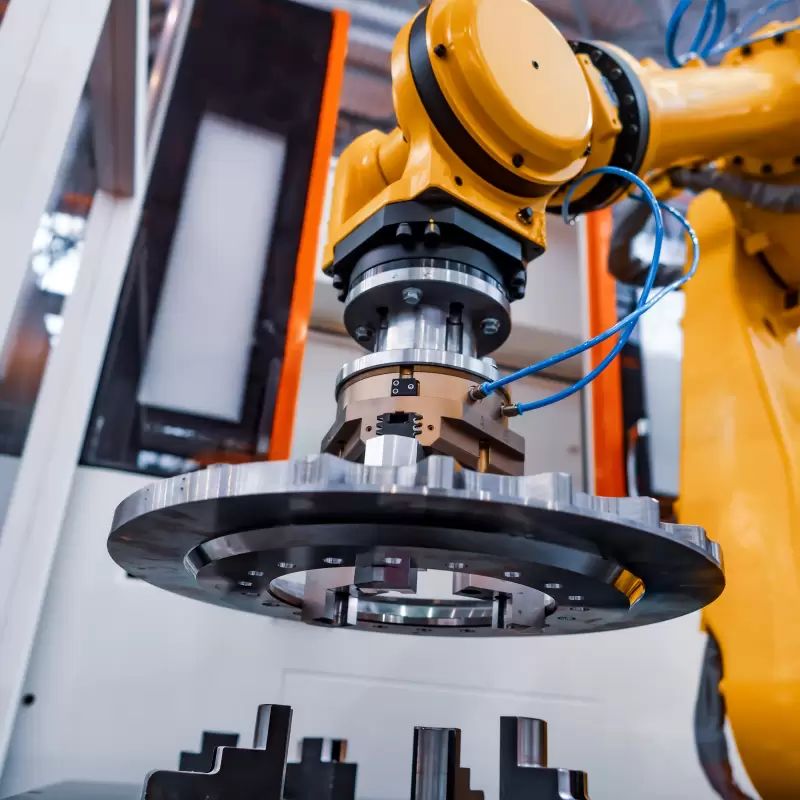
Versatility and innovation
The variety of felt types, from wool felt to needle felt and synthetic felt, enables specific product properties to be adapted to different applications. Wool felt, for example, offers excellent heat and sound insulation, while needle felt is preferred for industrial applications due to its durability and dimensional stability. Synthetic felt, on the other hand, is valued for its variety of colours and cost efficiency.
Overall, felt is a key material in the industrial world that is becoming increasingly important due to its adaptability, durability and ecological sustainability. Its wide range of applications and the constant innovation in felt technology show that this traditional material is also indispensable in modern industry.
